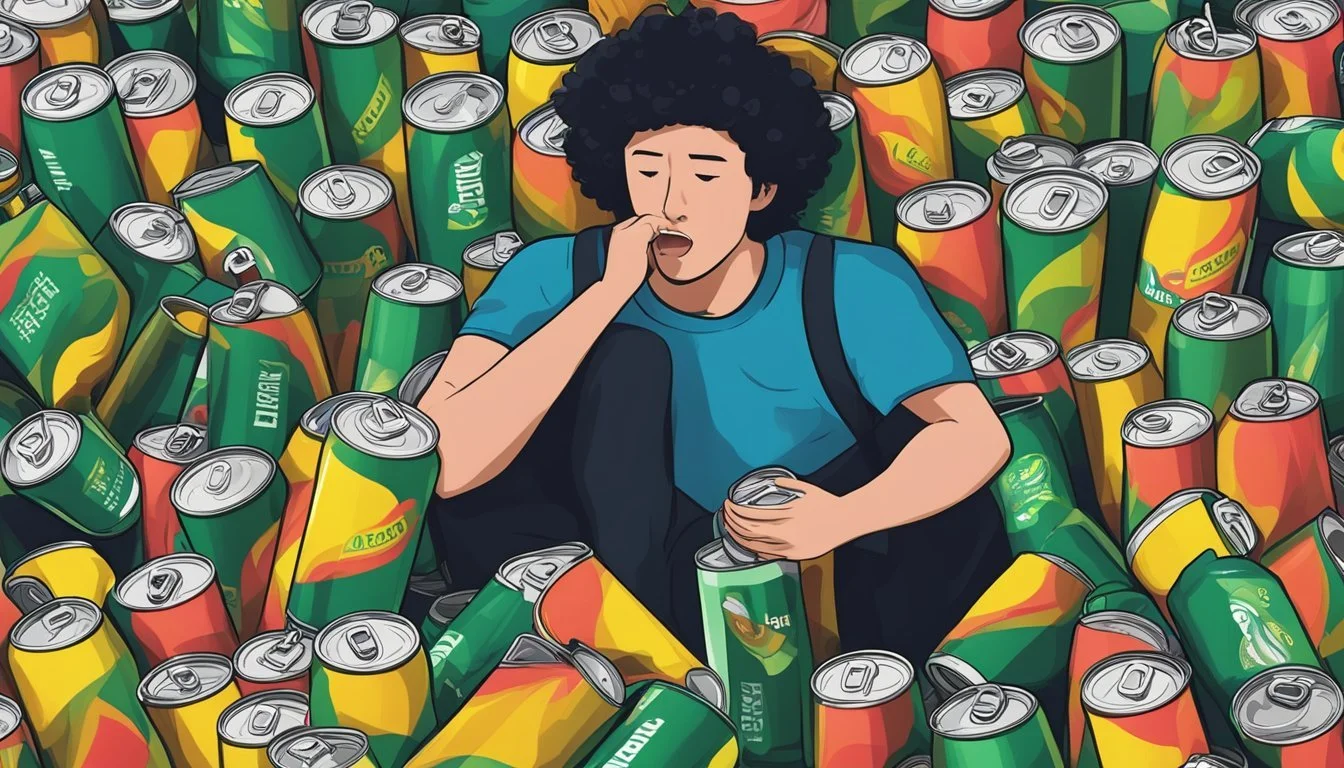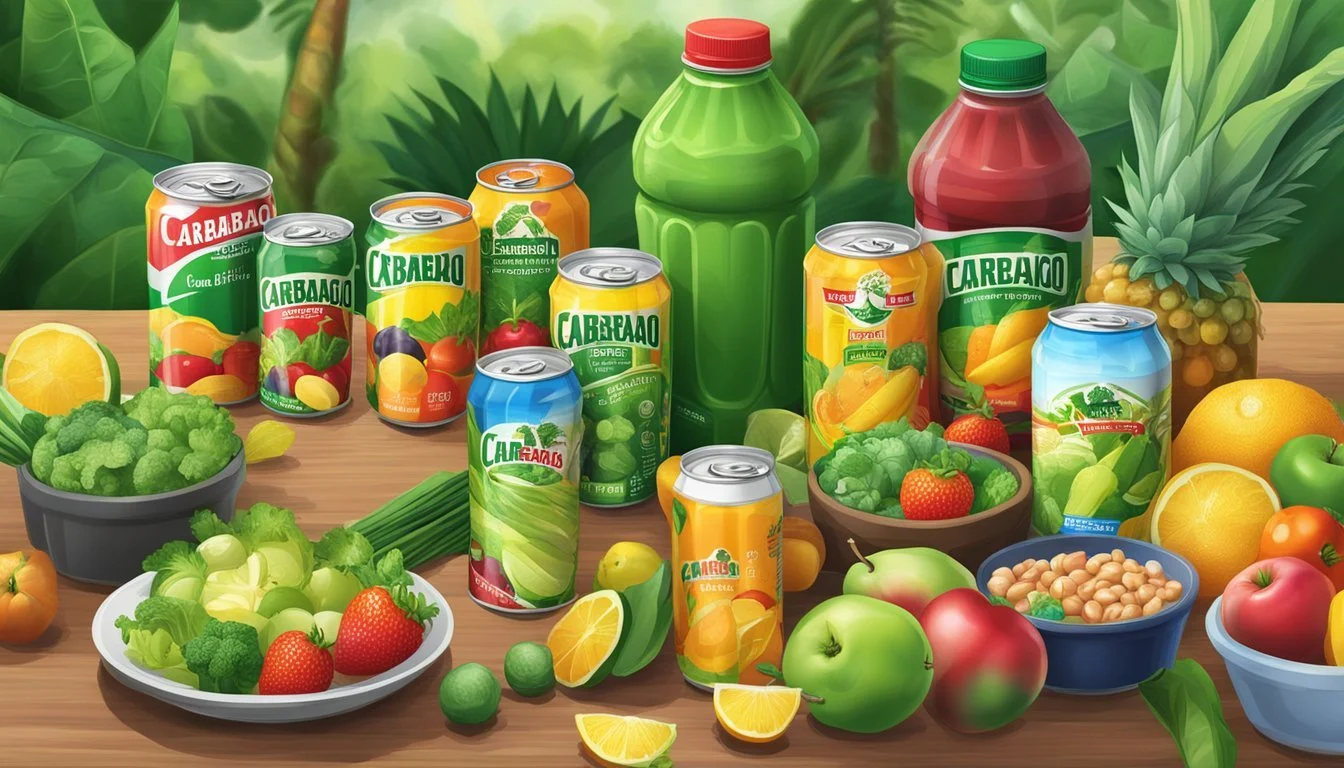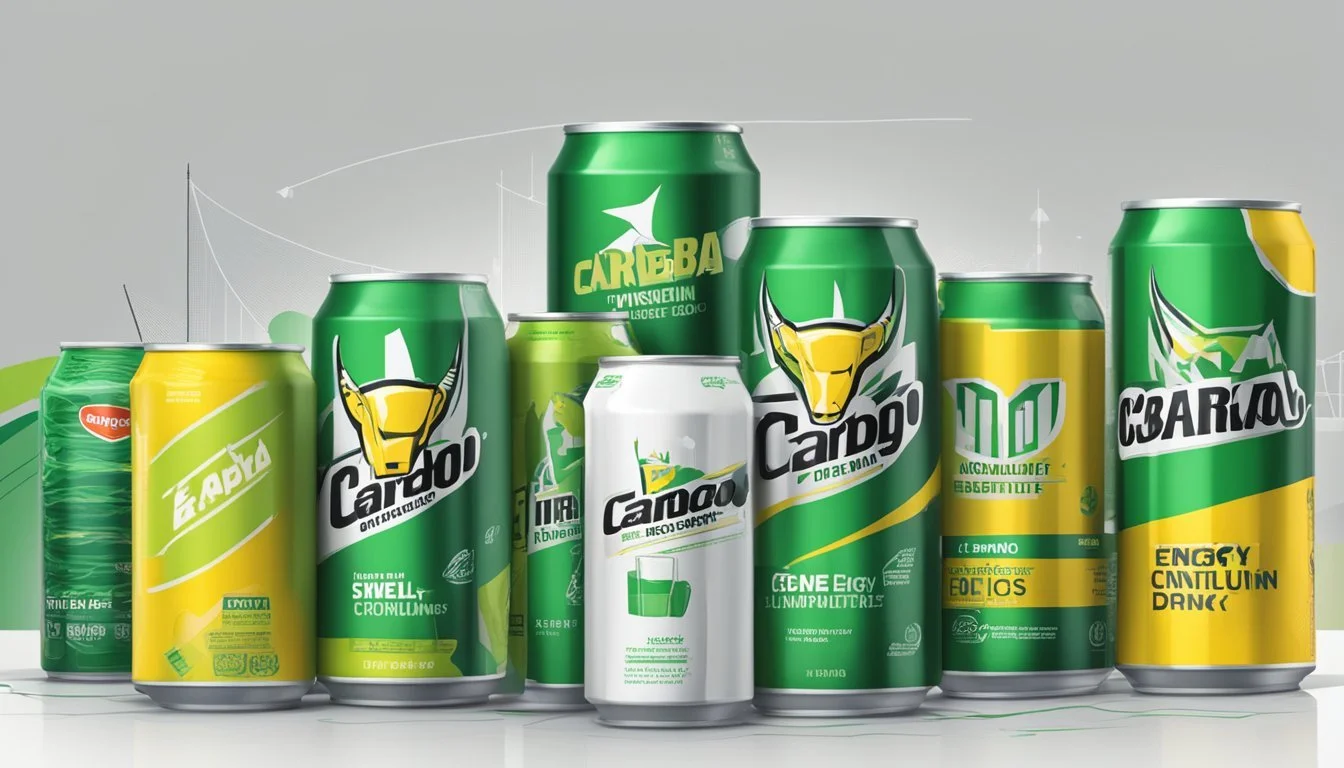How Many Servings of Carabao is Too Much
Expert Guidelines
Energy drinks like Carabao have become a popular choice for those needing an extra boost throughout the day. Each 300 ml serving of Carabao contains 105 mg of caffeine, which is manageable compared to the FDA's recommended daily intake of 400 mg. It is advisable not to consume more than three servings of Carabao in a single day to avoid the risks associated with overconsumption.
Moderation is key when it comes to energy drinks. Overconsumption of Carabao could lead to potential risks such as jitteriness, increased heart rate, and difficulty sleeping. These effects can be more pronounced for individuals who are sensitive to caffeine or consume other caffeinated products along with Carabao.
While Carabao can provide a quick energy boost, it’s important to be mindful of its ingredients and their impact on your body. Keeping track of your overall caffeine intake and understanding the appropriate serving size can help maintain health and well-being.
Understanding Carabao Energy Drink
Carabao Energy Drink offers a range of flavors with specific nutritional characteristics, making it unique among energy drinks. This section explores its composition, nutritional value, and how it stacks up against other popular brands.
Composition and Nutritional Value
Carabao Energy Drink contains 63 calories per can, which is relatively low for an energy drink. It also has net carbs and sugars that are essential to consider when monitoring dietary intake.
Component Amount per Serving (can) Calories 63 Total Carbohydrates 16g Net Carbs 13g Sugars 13g Caffeine 105mg Taurine 400mg Vitamins (B-family) Present Minerals Limited
Carabao is suitable for vegans and vegetarians. It includes B-vitamins that aid in converting food into energy, which is crucial for those needing a quick energy boost.
Comparison With Other Energy Drinks
Compared to Red Bull, Carabao has half the amount of sugar, making it a lower-calorie alternative. Red Bull contains 27 grams of sugar per can, whereas Carabao contains 13 grams.
In terms of caffeine, Carabao has 105mg per can, markedly lower than some energy drinks that can exceed 200mg per serving. This makes Carabao a safer option for those who consume other caffeinated products daily.
Taurine Content Comparison:
Red Bull: 1000mg per can
Carabao: 400mg per can
This lower taurine content might make Carabao a better choice for individuals sensitive to this ingredient. Carabao’s balanced nutritional profile and lower calorie count make it a significant option among energy drinks.
Health Implications of Energy Drinks
Energy drinks can provide quick boosts of energy and alertness but can also pose several health risks both in the short and long term. The impact on cardiovascular health, cognitive functions, and overall metabolic processes is significant and should be considered, especially with regular consumption.
Short-Term Benefits and Risks
Energy drinks like Carabao can temporarily enhance cognitive performance and physical endurance. A standard 330mL can of Carabao contains 105mg of caffeine, which can improve mental alertness and reduce the perception of effort during physical activities. Additionally, the nootropic blend of B vitamins can support metabolic functions.
However, excessive consumption can lead to acute health problems. High caffeine intake may cause irregular heartbeats, increased blood pressure, and anxiety. Short-term side effects can include jitters, headaches, and digestive issues. It's crucial to consider the balance between the temporary benefits and the potential for cardiovascular problems.
Long-Term Health Effects
Long-term consumption of energy drinks can result in more severe health issues. Regular high intake of caffeine can contribute to heart disease and persistent high blood pressure. The high sugar content in many energy drinks may lead to obesity and increase the risk of type 2 diabetes.
Additionally, the acidity and high sugar can contribute to tooth decay. Over time, the strain on the cardiovascular system might also escalate, increasing the likelihood of chronic diseases. Therefore, while occasional intake might be harmless for many, consistently drinking energy drinks can introduce significant health risks that must be managed through a well-balanced diet and healthy eating habits.
Recommended Servings for Different Age Groups
When determining the recommended servings of Carabao milk for different age groups, it’s essential to consider factors like nutrition and dietary fiber. Carabao milk is rich in protein but lacks dietary fiber, making it crucial to balance it within a balanced diet.
Infant to 3 Years
For infants and toddlers, breast milk or formula should be the primary source of nutrition. Small amounts of Carabao milk can be introduced after consulting with a pediatrician.
4 to 7 Years
Children in this age group can consume ½ to 1 cup of Carabao milk per day. It provides essential nutrients, but moderation is key to avoid excessive fat intake.
8 to 14 Years
1 to 1½ cups of Carabao milk daily is suitable for this age group. This helps in meeting their calcium and protein needs but should be part of a diversified diet that includes fruits, vegetables, and grains.
15 to 18 Years
Teenagers can have up to 2 cups of Carabao milk daily due to their higher nutrient requirements. It’s important to balance this with other food groups to ensure a comprehensive nutrient intake.
Adults (19 to 50 Years)
For adults, 1 to 2 cups per day is appropriate. It supports muscle maintenance and overall health but should be consumed as part of a diet rich in fiber and low in saturated fats.
Seniors (51+ Years)
Older adults should limit Carabao milk to 1 cup daily. It provides necessary nutrients without overloading on fats. Including high-fiber foods will help maintain optimal digestive health.
The Role of Energy Drinks in a Balanced Diet
Energy drinks, such as Carabao, can provide a quick energy boost through their combination of caffeine, sugars, and other stimulants.
Including energy drinks in a balanced diet requires attention to dietary guidelines and nutrient intake. These guidelines suggest moderation to avoid negative health effects.
One of the primary concerns is the high sugar content. Excess sugar can lead to weight gain, increased risk of type 2 diabetes, and other metabolic issues.
Nutrient Typical Energy Drink Content Protein Minimal to none Fats Minimal to none Fiber None Carbs 39-41 grams of sugar
Caffeine, another major component, can improve alertness but excessive consumption may lead to insomnia, increased heart rate, and anxiety.
While energy drinks lack protein, fats, and fiber, they are rich in caffeine and carbs in the form of sugars. Relying on these drinks for energy should be balanced with nutrient-dense foods.
Given their composition, energy drinks should not replace meals or snacks that provide essential nutrients. Instead, focus on a balanced diet that includes whole grains, lean proteins, healthy fats, and fiber-rich fruits and vegetables.
Incorporating energy drinks into a diet should be done thoughtfully, considering overall dietary intake and health impacts.
Signs of Overconsumption and Health Risks
Regularly consuming too many servings of Carabao energy drinks can lead to various health issues. It's important to recognize the signs of overconsumption to avoid these risks.
Excessive intake may cause weight gain and obesity due to high calorie content. Energy drinks often contain significant amounts of added sugar, contributing to the risk of developing diabetes.
Frequent consumption can negatively impact heart health. High sugar content and stimulants can increase heart rate and blood pressure, raising the risk of heart-related issues. Elevated cholesterol levels may also result from consuming too many sugary drinks.
Overconsumption can lead to digestive health problems. Individuals may experience stomach pain, constipation, or other gastrointestinal discomfort due to artificial ingredients and high sugar levels.
Consumers should be aware of these potential issues and moderate their intake to maintain overall health.
Alternatives to High-Sugar Energy Drinks
Smoothies can be an excellent alternative. They can be made with a blend of fruits, vegetables, and other nutritious ingredients. This provides a natural boost of energy without the added sugar and artificial ingredients found in many energy drinks.
Ingredients for a Healthy Smoothie:
Fruits: Bananas, berries, and apples
Vegetables: Spinach, kale, and carrots
Add-ins: Nuts, seeds, and whole grains like oats
Herbal Teas offer a caffeine-free energy boost and contain beneficial antioxidants. Teas like ginger, peppermint, and chamomile can provide a gentler pick-me-up.
Water with Lemon can keep you hydrated while providing a small amount of natural sugars and vitamins. Adding a slice of lemon or lime can make plain water more enticing and energizing.
Nut-Based Snacks like almonds and walnuts can supply long-lasting energy. They contain healthy fats, protein, and fiber that help sustain energy levels throughout the day.
Whole Grains such as oatmeal or quinoa serve as another good source. They release energy slowly due to their high fiber content, keeping blood sugar levels stable.
Coconut Water is a natural alternative rich in electrolytes, making it a good option for hydration and a mild energy boost. It’s low in sugar and provides essential minerals.
Using these alternatives can help reduce reliance on high-sugar energy drinks and contribute to better overall health.
Consumer Insights and Market Trends
Consumer demand for healthier options in beverages is on the rise. This trend is particularly evident in the energy drinks market, including brands like Carabao.
Health concerns are a driving factor. Consumers are more aware of potential health problems associated with high sugar intake, such as diabetes and obesity.
Sugar-free and low-calorie options are gaining popularity. Carabao has responded by offering sugar-free alternatives to cater to these health-conscious individuals.
Diet trends also play a significant role. Many consumers are following diets that prioritize low-calorie and low-sugar intake, which impacts their beverage choices.
A key report by Carabao in 2021 indicated significant growth in demand for such healthier energy drinks. The report highlights the increasing association of energy drinks with positive health attributes among consumers.
These insights underline the evolving landscape of consumer preferences and their impact on the market. Brands like Carabao continue to adapt by offering options aligned with these trends.









